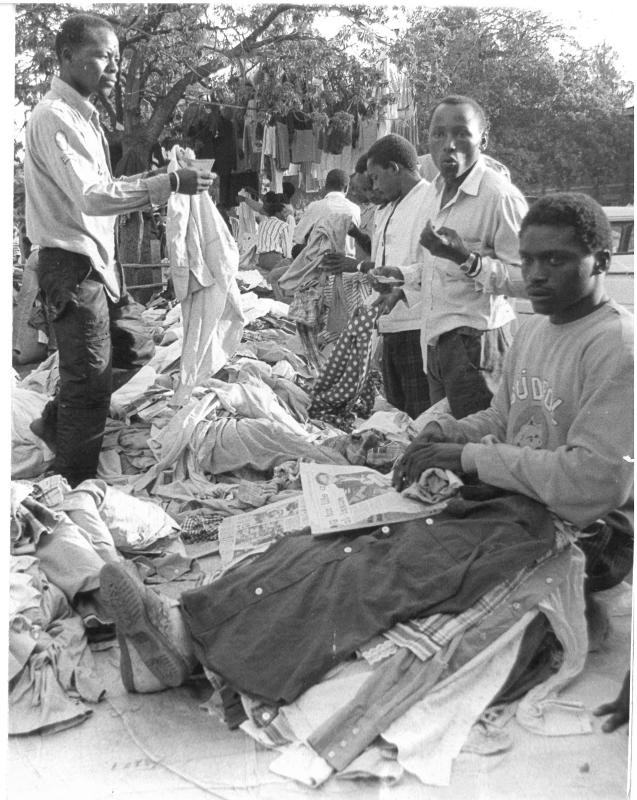×
The Standard e-Paper
Join Thousands Daily

Traders selling second hand clothes (mitumba) at Gikomba market in June 1991[File]
Before second-hand clothes became the country's unofficial uniform, local tailors and farmers could be trusted to cover the country’s collective nakedness.